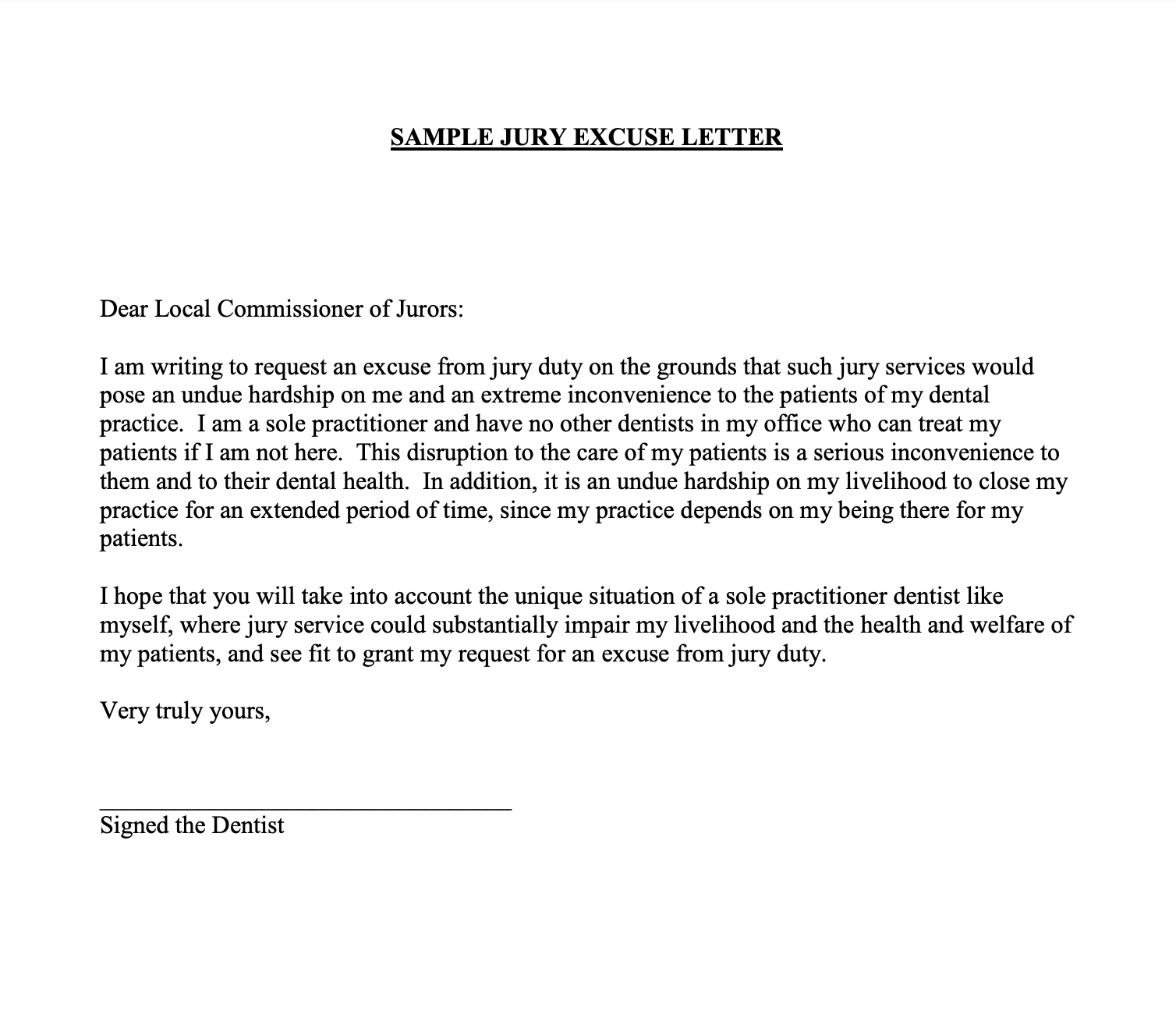
Step into the realm of judicial responsibility with our Sample Jury Duty Excuse Letter Template, a beacon for those in need of a well-crafted communication to the courts. This template is your ally, offering a structured and eloquent format for presenting your exemption request. Ideal for anyone grappling with the weight of work commitments, health constraints, or educational duties, it provides a clear pathway to state your case. With this letter template, you can confidently articulate your inability to serve, ensuring your message resonates with the gravity and respect it warrants. Embrace the power of a professionally composed excuse letter and navigate your civic duties with ease and integrity.

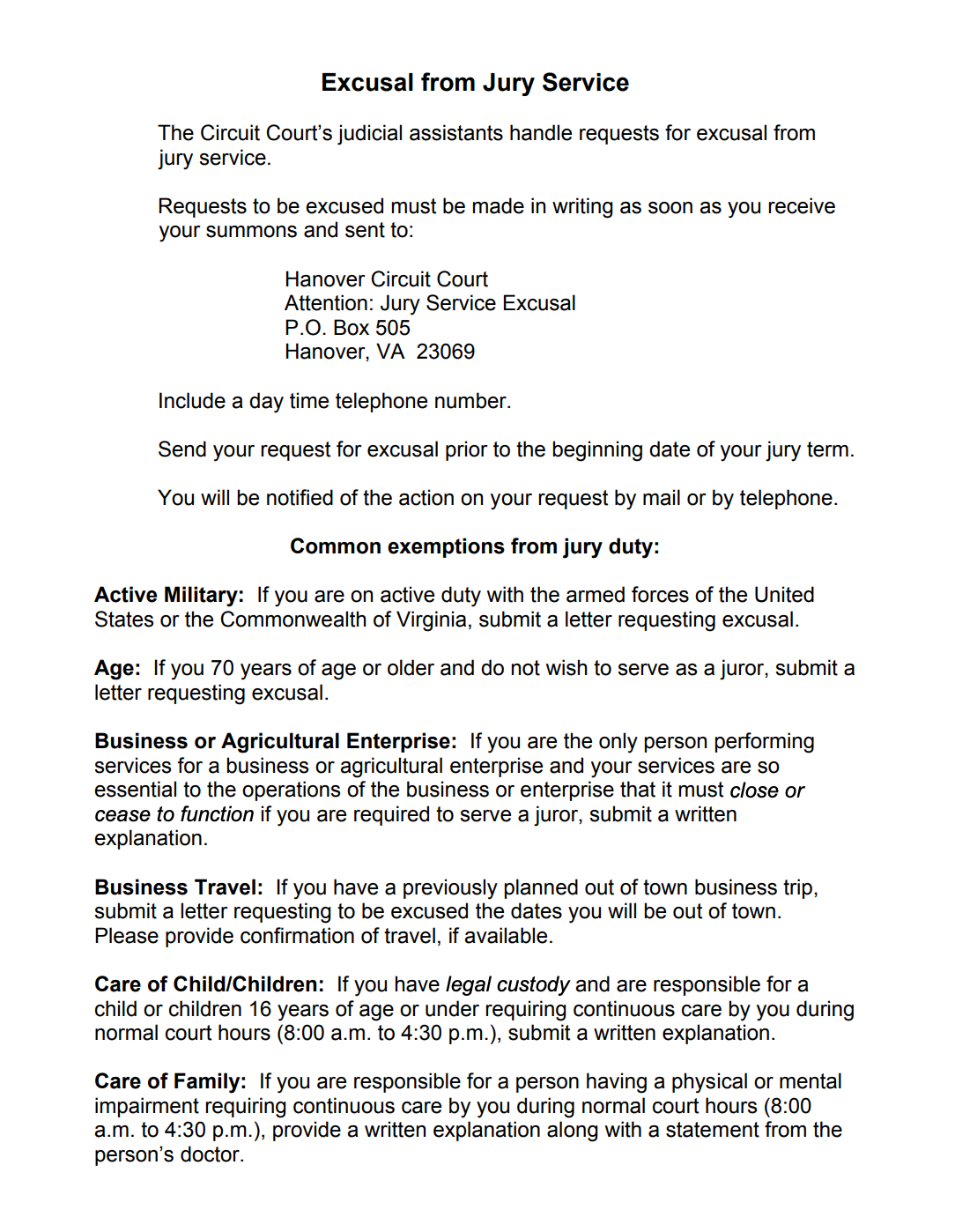
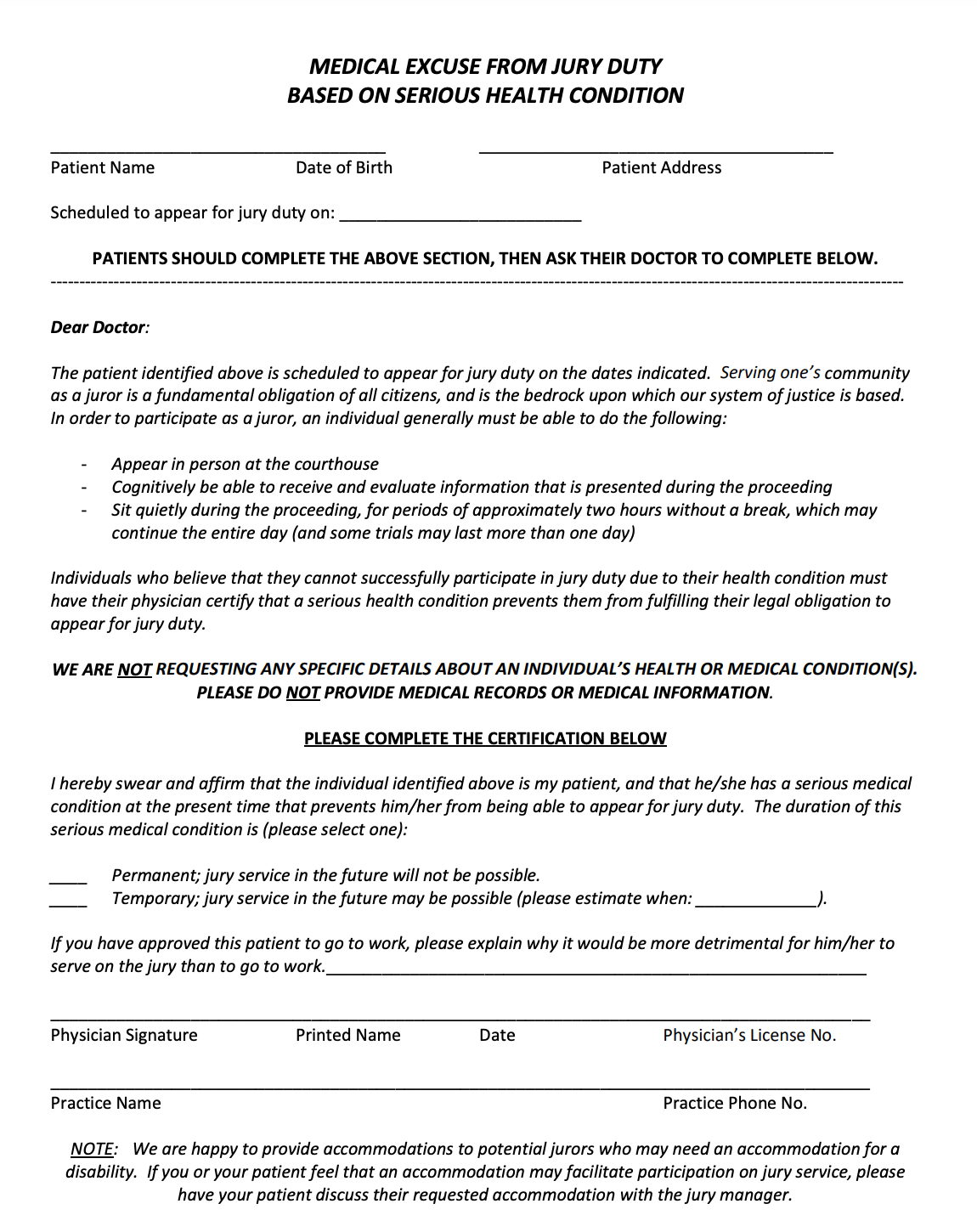
Jury duty is a cornerstone of the judicial system in the United States, embodying the democratic principle that one’s peers should determine the guilt or innocence of a person accused of a crime. It is a civic responsibility that calls upon citizens to serve as jurors in court proceedings, ensuring that the justice system operates fairly and impartially.
When summoned for jury duty, individuals are required to report to the courthouse and participate in a selection process known as voir dire. During this process, attorneys for both the defense and prosecution assess potential jurors through a series of questions to determine their suitability for the case at hand. This is to ensure an unbiased jury is empaneled, free from preconceived notions or prejudices that could affect the trial’s outcome.
Serving on a jury is not only a duty but also a right protected by the U.S. Constitution. The Sixth Amendment guarantees a defendant’s right to an impartial jury in criminal prosecutions, while the Seventh Amendment preserves the right to a jury trial in certain civil cases. These provisions ensure that the fate of individuals is not decided by a single judge but by a group of their peers, reflecting a cross-section of the community.
The types of cases heard by a jury can vary widely, from minor civil disputes to major criminal cases. The length of service also varies, ranging from a single day to the duration of a trial, which can last several weeks or even months in complex cases.
While jury duty is mandatory, there are certain exemptions and excuses that can be granted based on specific criteria such as severe financial hardship, significant personal obligations, or health issues. These are considered on a case-by-case basis, and individuals who cannot serve can submit a jury duty excuse letter to the court, explaining their circumstances.
The experience of serving on a jury offers a unique insight into the legal process and the functioning of the justice system. It provides an opportunity for citizens to contribute to the rule of law, which is fundamental to the governance of a free society. Despite the inconvenience it may sometimes cause, jury duty is a vital public service that supports the core values of democracy and justice.
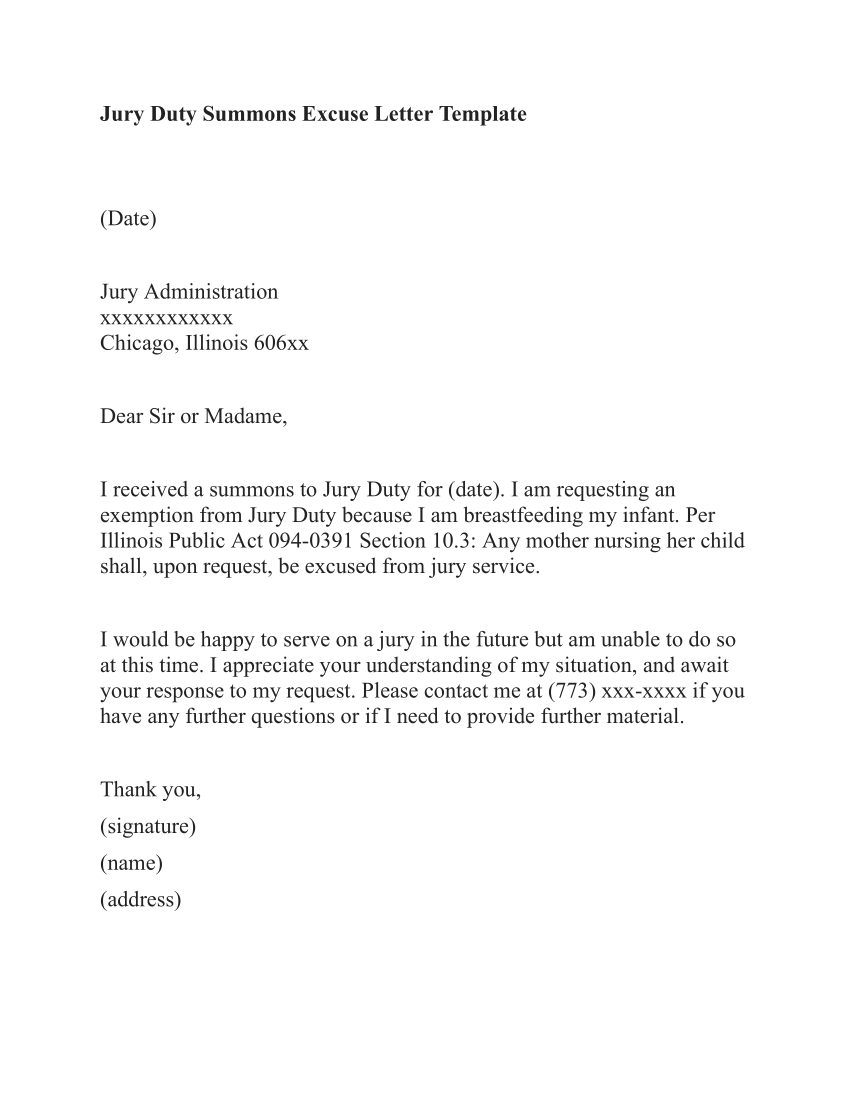
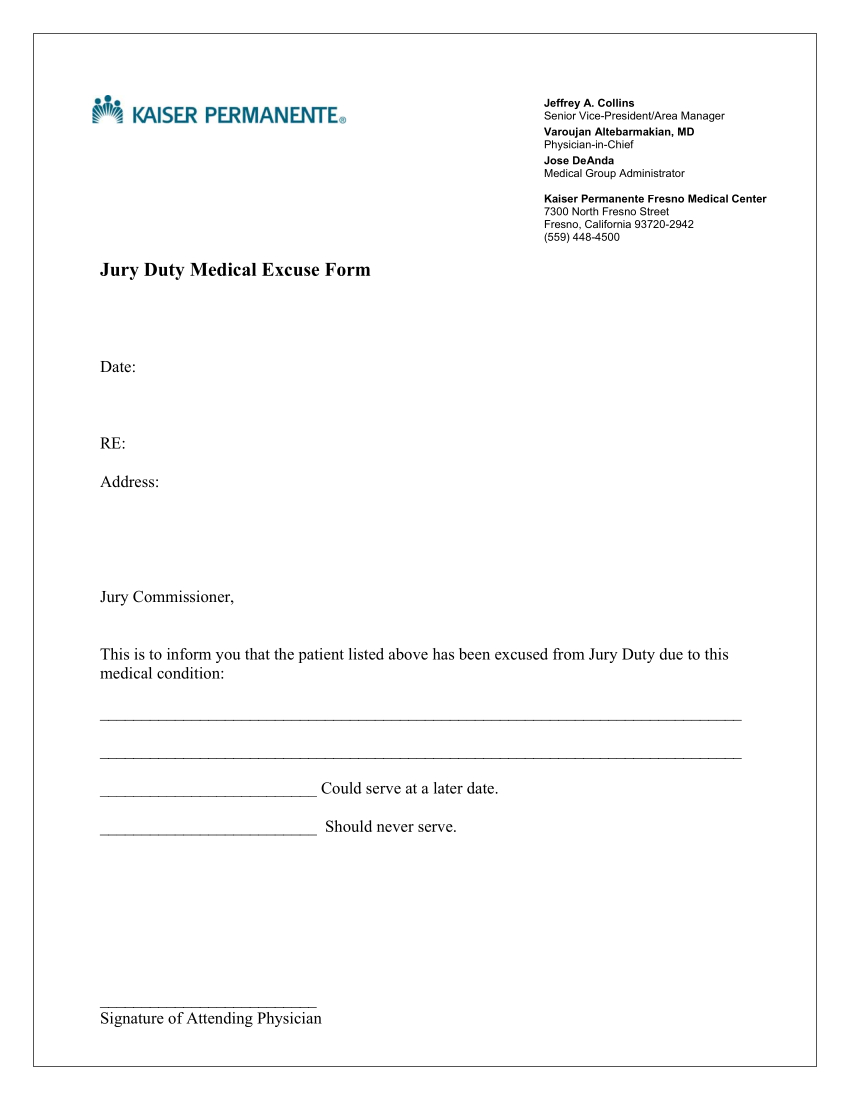
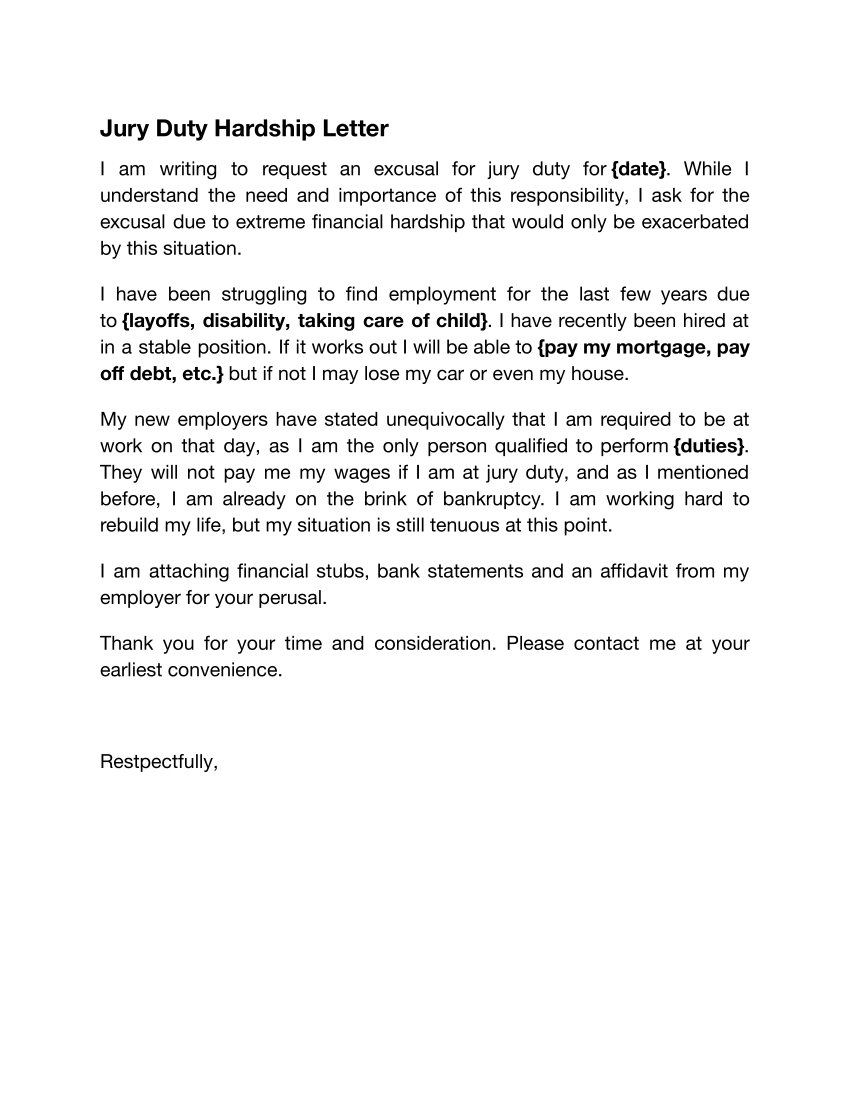
Writing a jury duty excuse letter is a formal way for a summoned individual to request exemption or deferral from serving on a jury. The reasons for seeking an excuse from jury duty are varied and typically revolve around personal, professional, or health-related issues that would make serving on a jury a significant burden. Here are some of the common reasons individuals may write a jury duty excuse letter:
Work-Related Conflicts: Many people find that taking time off work to serve on a jury can lead to undue hardship. Small business owners, freelancers, or those in critical roles may not be able to afford the time away from their professional responsibilities. In such cases, they must communicate how their absence from work could negatively impact their livelihood or the operation of their business.
Educational Commitments: Students and educators may be in the midst of a crucial academic period, such as exams or essential teaching periods. Serving on a jury could disrupt their academic responsibilities or progress, and thus, they may request an exemption.
Caregiving Responsibilities: Individuals who serve as primary caregivers for children, the elderly, or individuals with disabilities may find it impossible to fulfill their jury duties without causing distress or neglect to their dependents.
Medical and Health Issues: Health concerns are a significant reason for excusing someone from jury duty. Chronic illnesses, acute medical conditions, or mental health challenges that would make serving on a jury difficult or harmful to one’s health are valid reasons for an exemption.
Financial Hardship: Serving on a jury can impose financial strain, especially if the individual does not receive compensation from their employer during their service and the stipend from the court does not cover their usual earnings. This can be particularly impactful for hourly wage earners.
Scheduled Travel: Pre-planned, non-refundable travel, such as vacations or business trips, can coincide with the dates of service. Individuals must provide evidence of their travel plans and explain why rescheduling is not an option.
Recent Jury Service: Those who have recently served on a jury may be excused from serving again for a certain period.
Conscientious Objections: Some individuals may have moral or ethical concerns about serving on a jury, particularly in cases that could result in severe penalties like the death penalty.
Language Barriers: A potential juror who has limited proficiency in English may be unable to understand the proceedings fully and therefore may not be able to contribute effectively to the deliberation process.
Military Duty: Active-duty military personnel may be excused from jury service, especially if they are stationed away from home or deployed.
In all these cases, the excuse letter must be written clearly and respectfully, providing sufficient detail and any required documentation to support the request for exemption. The letter should be addressed to the court and outline the specific reason for the request, ensuring that the language is formal and the tone is courteous. The goal is to inform the court of legitimate circumstances that would prevent the individual from serving on a jury without causing undue hardship or affecting the fairness and integrity of the judicial process.